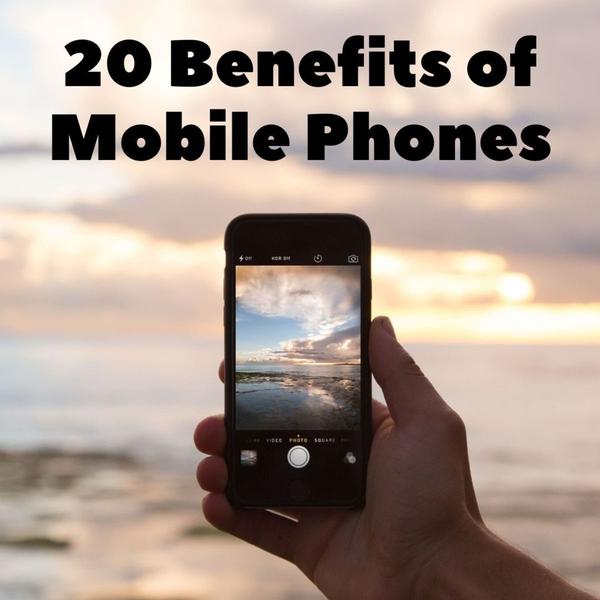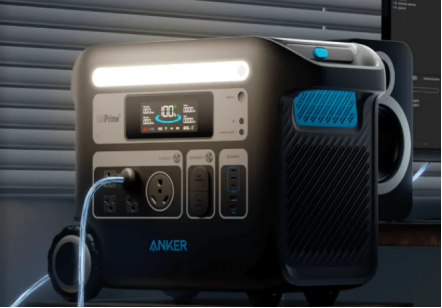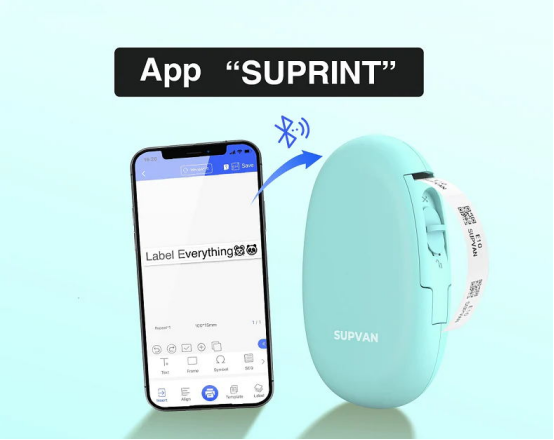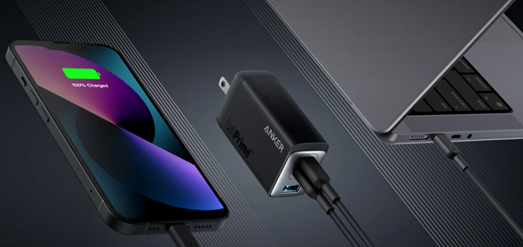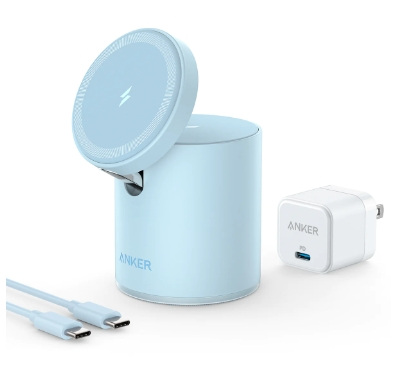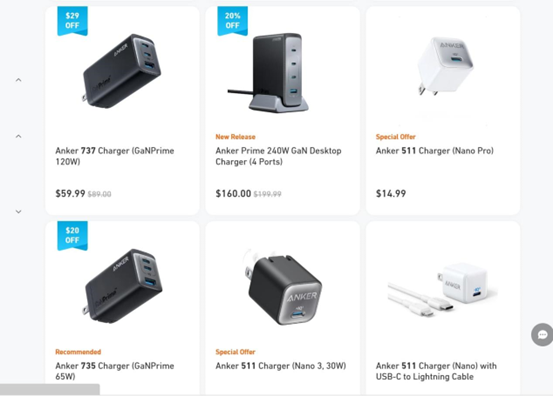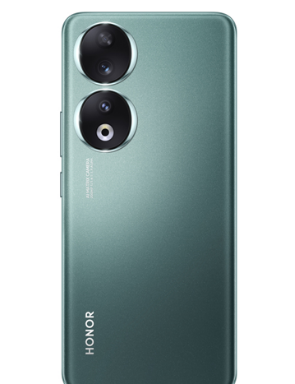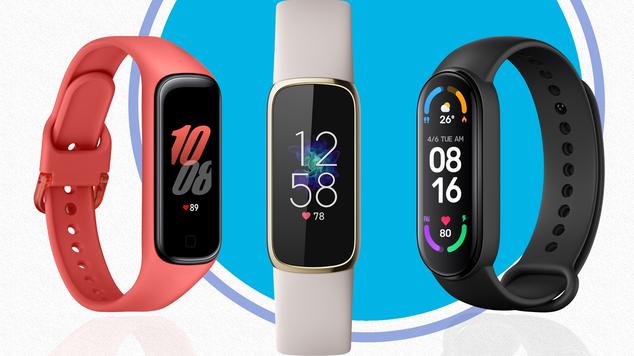
By cuterose
Fitness Trackers: Ranking Best Smart Health Activity Watches
Tracking your health is easier and more affordable than ever.
Today’s health trackers analyze blood pressure, heart rate, fitness, sleep, and countless other metrics. You can buy a health tracker for $20. Or, you can splurge on a $300 health tracker.
With hundreds of high-rated health trackers available, it’s hard to pick the best one. Today, we’re listing the best health trackers for any unique needs.
Ranking the Top Fitness Tracker Smartwatches
After much deliberation, in-person testing, and heated arguments, here’s how our editorial team ranked the best health trackers available today.
Contents
The Fitbit Versa 2 is one of the world’s most popular health trackers. Priced around $180, the Versa 2 has all of the features you would expect on a high-end health tracker – and more. It’s all packaged into a sleek, stylish package from one of the world’s most reputable fitness tracker brands. Like other Fitbit health trackers, the Versa 2 emphasizes accurate data, excellent cross-compatibility with apps and third-party services, and actionable health data. The Versa 2 tracks heart rate, steps, distance, calories burned, hourly activity, active minutes, and floors climbed, among other metrics. It lasts for 6 days on a single charge, and connects with your smartphone for easy phone notifications.
Price: $180
The Garmin Vivosmart 4 is another popular and well-rated health tracker. Garmin and Fitbit are the world’s two best-known fitness tracker brands, so it makes sense these two companies would dominate the top of our list. The Garmin Vivosmart 4 offers similar functionality to the Versa 2 – but in a more basic package. The health tracker lacks the same high-quality display as the Versa 2, although it tracks REM sleep, blood oxygen saturation, heart rate, stress, activities, and much more. At around $100 and change, the Garmin Vivosmart 4 is one of the best health trackers available today.
Price: $105
The Fitbit Charge 4 may be the best-looking health tracker on this list. Featuring a minimalistic display, a sleek black design, a built-in GPS, and other tools, the Fitbit Charge 4 can track heart rate, calorie burning, workouts, and more. It’s water-resistant to 50 meters, making it ideal for swimmers or even divers. And, with 7 days of battery life, the Fitbit Charge 4 works all week without needing to be recharged. Like with other Fitbit health trackers, the Charge 4 comes with good cross compatibility with Spotify and other third party services. Overall, the Charge 4 is one of the best-rated and most popular health trackers available today – and not just for the sleek design.
Price: $165
Want most of the benefits of the Charge 4 with a cheaper price tag? The Fitbit Charge 3 health tracker offers similar functionality for $50 less. The health tracker measures calorie burning, resting heart rate, activities, and more. It lasts 7 days on a single charge, and it comes with the same sleek design and durable band we’ve associated with the Fitbit Charge lineup. Rounding out the package are aerospace-grade aluminum, a smooth flush case, and personalized health insights via Fitbit Premium, among many other features. As one of the world’s best-rated and most popular health trackers, the Charge 3 remains one of the best options for anyone seeking actionable health data.
Price: $115
The Fitbit Inspire 2 is a health tracker priced under $100. It provides the same Fitbit quality and tracking – but in a cheaper package. Each Fitbit Inspire 2 tracks REM sleep, activities, steps, distance, calories burned, and other metrics. You can activate Fitbit Premium or stick with a free membership. It’s water resistant up to 50 meters as well – something you don’t always see fro health trackers in this price range. Fitbit’s Inspire 2 also works well with smartphones, displaying call, text, calendar, and smartphone notifications directly on your wrist.
Price: $100
Released in 2020, the Amazon Halo is Amazon’s unique entry into the health tracker space. Amazon’s Halo is immediately distinguished from the competition with its display-free design: there’s no display or screen on the device. It’s just a sensor hidden underneath a band. Most interactions with Halo take place over the app, and the Amazon Halo app may be the smartest app on this list. Amazon Halo tracks all of the metrics you expect a health tracker to track – including steps, activities, and calorie burning. However, you can also use the Amazon Halo app to track body fat percentage (by taking images of your body using the app). Amazon Halo is also the only major health tracker that analyzes your voice throughout the day, listening to your speech to detect anxiety, worry, calmness, and other metrics. Some find Amazon Halo unusually creepy, while others claim it’s the best health tracker in the world.
Price: $100
Garmint’s Instinct is the most rugged health tracker on this list. At $220, it’s also one of the most expensive health trackers. The health tracker features a GPS with GLONASS and Galileo. There’s also a 3-axis compass, allowing you to track direction without a smartphone signal. Maybe you’re a hunter who frequently spends time in remote wilderness. Maybe you like camping, hiking, or backcountry skiing. Whatever the reason may be, the Garmin Instinct is the best rugged health tracker on this list. It’s also backed by Garmin’s signature quality. It also has plenty of premium features you won’t find elsewhere on this list, including a barometric altimeter (For altitude) and built-in GPS. Garmin has packed an insane number of features into a single health tracker, and that’s why the Garmin Instinct is one of the best options on our list.
Price: $220
The Fitbit Inspire HR is the original version of the Inspire 2. It’s a lightweight, cheaper option that tracks heart rate, calorie burning, daily activities, and sleep, among other metrics. Essentially, the Inspire HR has all of the same features as the Inspire 2 – but it’s just one generation older. This is one of Amazon’s most-rated items in its online store, with an average 4.3 star out of 5 rating and 29,300+ ratings to date. Overall, the Fitbit Inspire HR can be seen on more wrists around the world than virtually any other health tracker on this list. It also comes with 5 days of battery life, automatic activity tracking, and other features you see on higher-end health trackers.
Price: $90
Fitbit and Garmin dominate the top of our list of the best health trackers. However, there are plenty of other effective health trackers from lesser-known companies. The Letsfit Smart Watch doesn’t have the brand recognition of higher-ranked options on our list, but it beats most competitors for value. At $31 for a smartwatch, the Letsfit Smart Watch provides effective health and fitness tracking without breaking the bank. And, with 17,000+ reviews and a 4.3 star out of 5 rating on Amazon, the Letsfit Smart Watch is one of the more popular options available. The Letsfit Smart Watch is “only” IP68 waterproof instead of 5 ATM waterproof, although that won’t matter unless you regularly dive more than 1 meter underwater.
Price: $31
The MorePro Fitness Tracker is a waterproof activity tracker that offers better value than virtually any other health tracker on this list. At $38 apiece, the MorePro Fitness Tracker measures heart rate and blood pressure throughout the day, sleep and activity tracking, and more. You can also connect the MorePro Fitness Tracker with your phone to receive SMS notifications, app notifications, and more. It’s not going to win any style points. However, expect the battery to last 5 to 7 days on a charge – similar to higher-ranked items on this list. Overall, you get the benefits of an average or high-priced health tracker – at an ultra budget price.
Price: $38
Lintelek’s Fitness Tracker is a surprisingly popular health tracker equipped with a heart rate monitor, calorie counter, pedometer, and other basic features. To be clear, Lintelek’s Fitness Tracker is an ultra-budget health tracker priced appropriately. At under $26, the Lintelek Fitness Tracker is one of the cheapest options on this list (and one of the cheapest smartwatches you’ll ever see). Despite the cheap price, you get basic functionality, multiple color options, 14 sport modes for automatic activity tracking, and 7 days of battery life per charge, among other features you may not see on other cheap health trackers.
Price: $26
YAMAY’s Smart Watch Fitness Tracker is yet another entry into the budget health tracker market. It provides basic health analysis at an ultra-budget price. At $36 for a health tracker, the watch features IP68 waterproofing, step tracking, calorie tracking, and multiple color options. It may have the most basic design on this list, including a cheaper plastic-based strap and flimsy latch, but at $36 for a complicated electronic device, the YAMAY Smart Watch Fitness Tracker could certainly be worse.
Price: $36
FITVII is another lesser-known fitness tracker brand equipped with a unique display, unique tracking measurements, and other features that differentiate it from the competition. At $45 and with a basic design, it’s suited for the budget market – but not for those willing to spend a little more on a higher-end health tracker. Nevertheless, the FITVII Waterproof Fitness Tracker tracks sleep, steps, calories, activities, and more.
Price: $45
You don’t have to wear a watch to track your health and fitness. Some health trackers come in the form of a ring. The Wellue O2Ring is a wearable sleep monitor that connects to your phone via Bluetooth, delivering many of the same measurements as other health trackers on this list. The ring has a small sensor that monitors your health metrics overnight. And, because it’s a ring-based system, the Wellue O2Ring can deliver insights we don’t see with other devices – like ab abnormal data warning of your Sp-O2 level is lower than the pre-set threshold or if your heartrate is lower or higher than the pre-set threshold. AT $180, it’s not a cheap health tracker, but it delivers actionable health insights in a unique system.
Price: $180
The Blumelody Smart Watch is a $46 health tracker that provides instant and accurate temperature measurements, blood oxygen monitoring, blood pressure monitoring, automatic activity tracking, and other features you see on higher-priced models. The main drawback is that the smartwatch is only IP67 waterproof, which means you can wear the health tracker in rainy weather and in the shower – but it should not be fully submerged in water (like when swimming). At this price range, you can likely find better options from more reputable companies, although the Blumelody Smart Watch remains a popular item.
Price: $46
The Amazfit Band 5 comes with a mid-range price but premium-range features. The health tracker lets you talk to Alexa, get answers, track blood oxygen saturation, and enjoy other metrics. It also lasts 15 days (!) on a single charge and tracks all of the basic features as other health trackers listed here, including steps, heart rate, distance, calories burned, sleep, sleeping patterns, and more. Although it has average ratings compared to other health trackers on our list, the Amazfit Band 5 remains a popular, if basic option at this price range.
Price: $50
If you’ve never heard of Bingofit, then that’s okay: nobody has. Bingofit’s health tracker, however, comes with a large touchscreen, effective health tracking functionality, and iPhone and Android compatibility. Priced at $40, Bingofit’s health tracker competes with other budget options on this list in terms of price, although it packs the features of more mid-range health trackers.
Price: $40
GOGUM’s Fitness Tracker is a heart rate monitor, blood oxygen tracker, blood pressure tracker, and activity tracker. At $44, the health tracker provides effective activity tracking packaged into an IP68 waterproof system. It doesn’t have the 5 ATM waterproofing of the highest-ranked options on our list, but at this price range, you don’t expect that ultra waterproof protection (and IP68 waterproofing is perfectly fine for most people). Whether swimming, cycling, running, walking, or hiking, the GOGUM Fitness Tracker provides effective fitness tracking at a budget price.
Price: $44
K-Berho’s Slim Fitness Tracker is a $28 health tracker, making it only $2 more expensive than the cheapest option on our list. At $28, you get basic fitness and health tracking functionality. With multiple color options, a minimalistic design, and multiple activity tracking, the K-Berho Slim Fitness Tracker is a budget smartwatch with mid-range features. Other budget smartwatches don’t have a display this pretty.
Price: $28
Innepaxe’s Fitness Tracker is one of the most value-packed options on our list, delivering budget health tracking at a budget price. It’s not going to win any fashion awards, but at $30 it doesn’t have to. It’s surprisingly well-rated by customers, who have given it a nearly perfect 4.8 star out of 5 rating on Amazon with 90+ reviews.
Price: $30
Snoky’s Fitness Tracker comes with a heart rate monitor, sleep tracker, IP68 waterproofing, and other decent features – despite the fact that it’s priced at just $26. Like other budget health trackers, the Snoky Fitness Tracker connects with your phone for most sensors, although that doesn’t make it any less useful (assuming you carry your smartphone everywhere). Like the Innepaxe Fitness Tracker above, the Snoky Fitness Tracker has surprisingly good reviews on Amazon, carrying an average rating of 4.8 stars out of 5 with 100+ customer reviews.
Price: $26
The SoundPEATS Watch 1 is a $33 fitness tracker with an average rating of 4.8 stars out of 5 on Amazon with 150+ customer reviews. It’s identical to other budget and mid-range health trackers on this list, delivering IP68 waterproofing, a 1.4” color touchscreen, smartphone notifications, heartrate monitoring, and sleep tracking, among other features. It won’t win design awards, and it’s nowhere close to high-end fitness trackers, but it’s a powerful device with incredible value.
Price: $33
PUBU’s Fitness Tracker is a health tracker that, oddly enough, is marketed specifically for “women and teens” through Amazon because the band has a smaller wrist size than other health trackers. At $26, the health tracker is available in four colors and carries basic functionality. PUBU isn’t a well-known fitness tracker brand, but the health tracker has an average rating of 4.9 stars out of 5 with 100+ reviews from real customers.
Price: $26
The Ace 2 is made by the most reputable health tracker company in the game – but it’s specifically designed for kids. The colorful, kid-friendly design introduces children to the world of health tracking. Kids earn virtual badges and get fun on-screen celebrations when they reach their goals. It’s swim-proof up to 50 meters and surprisingly durable, making it ideal for even the most active kids. The Ace 2 also comes with kid-specific features like bedtime reminders. Kids can also challenge friends to a step competition, swap out animated faces, and enjoy other features. They’ll want a Fitbit Charge 4 when they get older – but the Ace 2 is ideal for today.
Price: $65
The Xiaomi Mi Band 4 is the best-value health tracker on this list. You won’t find a health tracker with better features, brand recognition, and value than the Xiaomi Mi Band 4 – and it’s not even close. At under $30 for a fully-functional health tracker, the Xiaomi Mi Band 4 is unbeatable compared to its competitors – at least in terms of value. The health tracker comes with heart rate monitoring, sleep monitoring, idle alerts, and automatic 6-workout tracking. It also has a 0.95-inch colorful AMOLED display with 120×240 pixel resolution – a luxury feature that’s unheard of among other health trackers on this price range. If you want a basic but effective health tracker that doesn’t break the bank, then the Xiaomi Mi Band 4 is one of the best options available.
Price: $30
Health trackers all make similar promises. They all claim to effectively track health and fitness metrics, but only a rare few actually live up to that promise. To separate good and bad health trackers, our editorial team considered the following:
Accuracy: Most health trackers track steps, calories, and distance, but not all are equal. Accuracy is important, and the cheapest health trackers are wildly inaccurate. You might check your health tracker app to discover you walked 2 miles – when you actually just completed a marathon. Inaccurate health tracking is a serious problem with the cheaper health trackers.
Health Tracking: Health trackers, by definition, track various health metrics. All of the health trackers above track things like heartrate, sleep, steps, and distance. Higher-end health trackers track blood pressure, body fat percentage, blood oxygen, and other surprising metrics.
Activity Tracking: The best health trackers automatically track activity without manually inputting anything. Some track dozens of activities – from hiking to cycling to running. Others require you to input activities manually.
Brand Reputation: Brand isn’t everything, but there’s a reason Garmin and Fitbit make the best health trackers on the market. They use the best tracking algorithms, sensors, and patents to deliver a superior experience. We considered brand reputation in our rankings, although we considered health trackers from all brands and companies.
Waterproofing: All health trackers come with some type of waterproofing, although it varies widely. Cheaper health trackers offer IP67 waterproofing, mid-range trackers have IP68 waterproofing, and high-end health trackers have ATM 5 waterproofing (good for 50 meters underwater). Most people don’t swim 150 feet underwater, but swimmers and divers appreciate good waterproofing.
Display: Some health trackers have a 1.0-inch color display, while others have a cheap, basic display. Some health trackers – including the Amazon Halo – don’t have any display whatsoever.
Compatibility: Good health trackers are compatible with all types of smartphones, third party apps and services, and other platforms. Cheaper health trackers rely on poorly-designed mobile apps and don’t connect with Spotify, GPS services, and other services.
Mobile App: Most health trackers come with a mobile app. However, not all mobile apps are alike. Some mobile apps are poorly-designed and poorly-maintained, while others are backed by millions of dollars of software development. This is where brand reputation makes a significant difference, as mobile apps from Garmin and Fitbit are heads-and-shoulders above the competition.
Style & Design: Let’s face it: some health trackers are just prettier than others. Some companies have invested heavily into design, while others have basic designs and cheap plastic bands.
Durability: Even if you’re not a hardcore athlete, durability is important. You don’t want to spend $100+ on a health tracker and have it break the first time you go for a run in the rain.
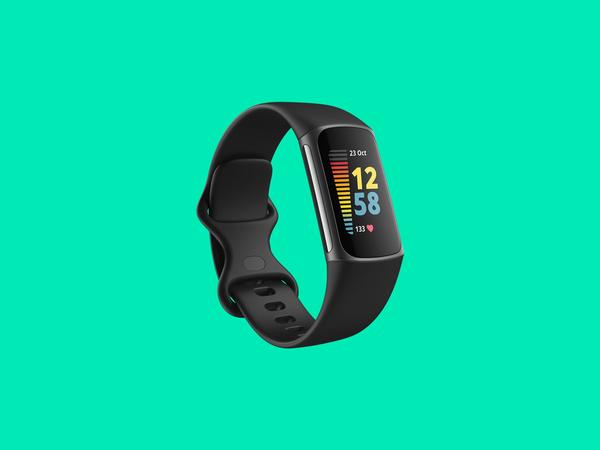
Price & Value: Some people want to spend $300 on a health tracker, while others want to spend $20. We featured a range of health trackers for all budgets, although we emphasized good value at every price.
Comfort: None of the features above matter if the health tracker is uncomfortable. You might have the best health tracker in the world – but if you don’t like wearing it, then it won’t be useful.
Who Should Use a Health Tracker?
People use health trackers for all different reasons. Some are amateur athletes. Others are trying to lose weight. Others are monitoring health conditions on the advice of a doctor. Some just like to see how well they sleep each night.
Anyone trying to lose weight can benefit from a health tracker. All health trackers monitor calorie burning. Some trackers even monitor calorie intake, using heartrate and other metrics to determine how many calories you just consumed.
Athletes at all levels can benefit from a health tracker. Maybe you’re a weekend warrior training for your first half-marathon. Or, maybe you’re a professional athlete seeking a competition edge.
Speaking of professional athletes, many pro sports teams now ask players to wear health trackers. Sports teams track sleep quality, post-game recovery, and other metrics using health trackers. Sure, they may wear higher-end health trackers – with proprietary tracking systems. But the basic functionality is the same.
Some doctors recommend wearing health trackers to monitor certain conditions. Under advice of a doctor, you might use a health tracker to measure blood pressure, heart rate, and other metrics, for example. Does your blood pressure spike in certain situations? Does your heartrate increase after certain foods? A health tracker may be able to help measure and control this phenomenon.
Maybe you struggle with sleep. Some people have insomnia. Others wake up feeling sluggish. Even if you get 8 hours of sleep, you might not spend a significant amount of time in REM sleep. A health tracker can monitor this effect, giving you valuable insight into your sleep time and quality.
Some people use health trackers to monitor energy. Do you wake up some days feeling more sluggish than others? Do you feel energetic and productive on some days but not others? A health tracker can help.
Similarly, some use health trackers to track cognitive ability. You may feel smarter some days than others. You might ace a test one day, then struggle to add 2+2 the next day. Cognitive performance is tied with health, wellness, sleep, and other factors, and health trackers can help.
Whether trying to lose weight, taking athletic performance to the next level, or wanting a better sleep, health trackers help anyone achieve powerful benefits.
Benefits of a Health Tracker
We all know health trackers can measure heartrate, calorie burning, activities, and more. But do they actually provide scientific benefits? Is there any evidence health trackers can help with weight loss, cognition, athletic performance, and other metrics?
Surprisingly, yes!
Health trackers could make you smarter. This 2010 study indicated that exercise was linked with positive effects on cognition. In simple terms, exercise makes you smarter, and people who exercise regularly tend to have better cognition than those who exercise less frequently. Health trackers send an alert when you’ve been inactive for too long, and this can help you be more active – and make you smarter.
Similarly, health trackers help you get the right amount of exercise – not too much or too little exercise. They alert you when you’ve been inactive for a long period. They tell you when you’ve exercised too much in a certain window. They help you recover from exercise and maximize every workout.
This 2011 study, for example, showed that people benefited most when they got at least 15 minutes of moderate exercise per day, or about 90 minutes of exerciser per week. People who exercised for this amount had a 14% lower chance of mortality. They also lived 3 years longer, on average, than those who exercised less and had a 1% lower chance of cancer for every 15 extra minutes of exercise per day.
Cardiovascular disease is the number one cause of death in most developed countries, and blood pressure is a key indicator of cardiovascular disease. People with high blood pressure have a higher risk of heart attack, stroke, and cardiovascular disease than those with normal blood pressure. This 1989 study found that 9 months of low or moderate-intensity exercise training could decrease blood pressure in men and women with high blood pressure. Researchers noticed a significant drop in blood pressure after 9 months of normal exercise training.
Other studies have noticed a specific connection between heart disease and physical activity. This 1991 study, for example, found a consistent connection between heart resiliency and exercise. Hearts more accustomed to exercise are better able to resist heart disease.
There’s another benefit of health trackers that isn’t as frequently discussed: health trackers gather data for doctors. A growing number of doctors and healthcare organizations use health trackers to monitor patient data. Most of these devices are FDA-certified health devices – more advanced than the units listed above. However, they track similar measurements, including blood pressure, heart rate, exercise, and more.
While some health professionals use proprietary devices, most health professionals use Fitbit health trackers. This 2018 study from researchers in Norway found that the most popular health trackers for researchers, in descending order, included Fitbit, Garmin, Misfit, Apple, and Polar, with Fitbit used in twice as many validation studies as other brands. Researchers performing clinical trials were 10 times as likely to use Fitbit. In other words, Fitbit is well-regarded in the industry for providing reliable health data suitable for professional research.
Some health professionals use trackers to analyze and prevent diabetes. Millions of Americans have pre-diabetes, with approximately 80% of pre-diabetics being undiagnosed. That means a significant number of people have pre-diabetes without knowing it – even if you otherwise feel healthy and have not been diagnosed. Some health professionals use health trackers to measure activity and prevent diabetes, while others use higher-end health trackers to track blood sugar before and after meals.
Health trackers have a proven ability to aid with sleep. Sleep is understandably important. Research shows that sleep deficiency is linked with disease. People who don’t sleep enough have poor immune systems and poor overall health. People who get a sufficient amount of sleep each night tend to be healthier.
Sleep also impacts cognition. As this 2010 study indicated, sleep deprivation has a significant effect on cognition, with people who don’t sleep enough performing significantly worse on cognitive tasks.
Some sleep studies have even found a statistically significant connection between sleep deprivation, depression, and Parkinson’s disease. People who get less sleep tend to have a higher risk of depression and Parkinson’s disease compared to those who get sufficient sleep.
A health tracker lets you track your sleep duration and quality. If you sleep better in a certain environment, for example, or feel fatigued on certain days, then health trackers let you identify factors linked to this fatigue.
All health trackers contain sleep tracking systems of some type, and good sleep tracking can help optimize sleep to reduce your risk of disease, among other issues.
Side Effects of Health Trackers
Health trackers aren’t perfect. Some health trackers are completely inaccurate. You might think you have severe heart rate problems – when it’s really just your health tracker performing incorrectly.
Even the best health trackers aren’t 100% accurate. There will always be minor discrepancies for distance, steps taken, calorie count, and other metrics.
Some people don’t do well with health trackers. Some people struggle with body image, for example. The Amazon Halo health tracker lets you scan an image of yourself, then slide a scale to see different body fat percentages. Some have criticized the Amazon Halo app for encouraging unhealthy behaviors or unrealistic standards. Those who are prone to body image issues or eating disorders may not want to use a health tracker.
It’s also important to note that health trackers aren’t guaranteed to change behavior. This 2016 study analyzed how fitness trackers impacted long-term user health. Although users received more information from their health trackers, they weren’t always linked with long-term health effects. In fact, researchers concluded there was “little evidence” linking health tracking to long-term behavior changes.
Other studies have indicated weight loss is more about psychology than anything else: real change needs to come from within you. No matter what diet or exercise program you choose, psychology is the most important factor for weight loss. This 1996 study found that behavior change only occurs if autonomously motivated. In other words, don’t buy a fitness tracker and expect instant motivation or lifestyle changes: you still need inner motivation to be successful.
Overall, however, health trackers do their job and are associated with limited side effects. The best health trackers are safe and effective, delivering actionable health insights with limited issues.
FAQs About Health Trackers
Some of the questions we get about health trackers include:
Q: How do health trackers work?
A: Some health trackers have internal sensors to track movement and other data. Other health trackers connect to your phone, borrowing your phone’s GPS signal or heart rate monitor.
Q: Will a health tracker work with my phone?
A: Most health trackers work with all modern iPhone and Android devices, connecting to your device via Bluetooth.
Q: Do I need to connect my health tracker to my smartphone to use it?
A: Most health trackers work without pairing to a smartphone, although they offer extended functionality when paired. Some health trackers don’t’ have a built-in GPS, for example, relying on your phone’s GPS signal instead.
Q: Should I wear my health tracker all the time?
A: Most health trackers are designed for 24/7 use when sleeping, exercising, and walking around. Most health trackers are also water-resistant or better, which means you can use them in the shower.
Q: How long do health trackers last per charge?
A: A good health tracker lasts 4 to 7 days per charge. Some health trackers (like the Amazon Echo) last just 2 days with all features enabled, while others last 14 days or longer.
Q: What’s the best health tracker?
A: Garmin and Fitbit make the best health trackers in the game, offering accurate readings and high-quality build design.
Q: What’s better – Garmin or Fitbit?
A: Both Garmin and Fitbit are well-rated health trackers known for accurate readings and durability. With multiple models available, it depends on your unique needs and budget.
Q: How accurate are health trackers?
A: Some health trackers are completely inaccurate, while others are pretty close to 100% accurate. It depends on the price you paid, the sensor quality, and the algorithms used, among other metrics.
Q: Can health trackers improve health?
A: Many use health trackers to lose weight, improve health, reduce the risk of disease, and target other benefits. There’s some evidence that health trackers can help you lose weight, although weight loss always needs internal motivation.
Q: Is it safe to wear a health tracker 24/7?
A: There’s no evidence wearing a health tracker 24/7 is linked with an increased risk of health problems, nor is there evidence that health trackers emit harmful levels of radiation.
Q: Can hackers hack my health tracker?
A: You can find anecdotal reports online of hackers theoretically targeting health trackers and stealing health data, but there’s no real-world evidence this has ever taken place.
Q: Can health trackers detect heart problems, abnormal heartbeats, or heart attacks?
A: Some health trackers are specifically designed to target heart arrhythmia (irregular heartbeat). However, most health trackers are designed to simply analyze health data without providing customized medical advice.
Q: How do health trackers know I’m sleeping?
A: Health trackers use algorithms to detect sleep. Your heartrate drops and your movement changes when you fall asleep. Based on this data, health trackers determine whether or not you’re sleeping.
Q: How do health trackers track different activities?
A: Companies have invested millions to create algorithms tracking different activities. Your health tracker data analyzes movement, then runs that data through an algorithm to determine your most likely activity. High-end health trackers are close to 100% accurate, while cheaper health trackers might be completely inaccurate.
Q: What’s the difference between a smart watch, fitness tracker, and health tracker?
A: Smart watch, fitness tracker, and health tracker are three broad terms that generally refer to smart health devices. They’re used interchangeably with no set definitions between them.
Q: What fitness tracker can I swim with?
A: Any fitness tracker with IP68 or ATM 5 waterproofing is generally safe for swimming. ATM 5 health trackers can survive in 50 meters (150 feet) of water and are the highest-rated among consumer-grade health trackers.
Q: Do health trackers work on treadmills or ellipticals?
A: The best health trackers (including most Fitbit and Garmin devices) automatically detect movement on treadmills and ellipticals, among other machines. Cheaper health trackers, however, may not register this movement whatsoever. Check if your health tracker has an accelerometer, as it may use accelerometer data to track movement even when your GPS location is stable.
Q: Can I pair my fitness tracker with MyFitnessPal, Apple Health, etc.?
A: Most reputable health trackers pair with MyFitnessPal and other third party services. Check before you buy, as integration varies widely. Most health trackers recommend using their native app (like FitBit Premium) to track data.
Q: Where can I buy health trackers?
A: You can buy health trackers from any electronics store or general retailer online or offline.
Q: How do health trackers connect to my phone?
A: Most health trackers connect to your Android or iPhone via Bluetooth. As long as your phone is within 6 to 20 feet of your health tracker, it should pair automatically.
Q: Can I wear my health tracker in the shower or while swimming?
A: Most IP67 and IP68-rated health trackers work safely in the shower or while swimming. Some health trackers are rated ATM 5, which means they survive submerged in 150 feet (50 meters) of water.
Q: What’s the cheapest health tracker?
A: Some of the top-ranked health trackers above are priced under $30, giving you decent functionality at an affordable price.
Final Word
Health trackers can help you lose weight and achieve fitness goals. They can help you measure blood pressure and heart rate, sleep quality and sleep duration, among dozens of other metrics. Some even track body fat percentage or analyze your voice.
Today, health trackers are more affordable than ever. You can find a decent health tracker for under $80, and there are plenty of high-quality health trackers under $200.
For the best health trackers available today, buy one of the top-rated fitness and health trackers from our list above.
FacebookTwitterPinterestLinkedInRedditWhatsAppEmail

